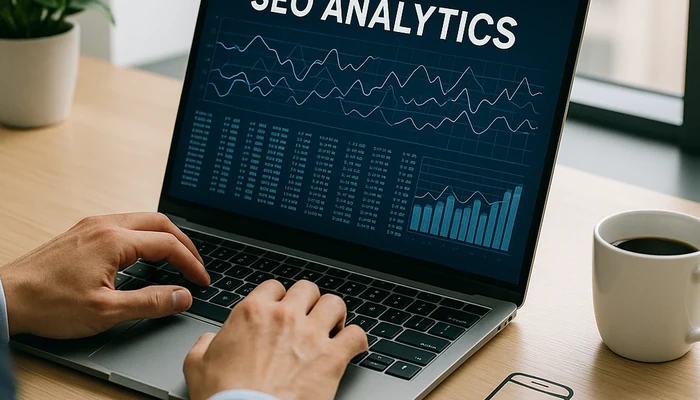Optimize SEO for E-Commerce Today: A Comprehensive Guide to Strategy, Metrics & Growth
Many businesses struggle to turn their e-commerce websites into real sales engines. You may have invested time (and budget) but see little return, watch traffic fail to become leads, or realize that your marketing isn’t tracked or optimized. Optimize SEO for E-Commerce Today is critical for any digital strategy that aims for more than just visibility – it’s about qualified leads, conversions, and sustainable growth. This guide will provide clarity, actionable frameworks, and warnings about common missteps, so you make informed, confident decisions. If you ever feel overwhelmed, remember that Boxmark Digital is here to help guide your journey with proven expertise.
Strategic Context: Why Optimizing SEO for E-Commerce Matters
Why This Topic Matters for Your Business
SEO for e-commerce is no longer just about being found. It’s about targeting high-intent buyers, maximizing returns on your digital spend, and building a long-term asset for your brand. Without a proactive strategy, you risk missing revenue opportunities and falling behind competitors already investing in integrated digital marketing.
Typical Problems SEO Optimization Solves
- Poor rankings for key product pages.
- Low organic traffic and stagnant sales.
- Inefficient ad spend due to missed organic opportunities.
- Lack of actionable analytics to drive improvements.
- Failure to convert site visitors into customers.
For deeper insight into the impact of SEO on business performance, see this hub on SEO marketing’s power.
Key Concepts You Must Understand
Basic Definitions
- SEO (Search Engine Optimization): The process of enhancing your site to increase its visibility for relevant searches. Backlinko’s definition is a trusted industry reference.
- Local SEO: Tactics focused on improving visibility for geo-targeted queries, vital for stores serving specific U.S. regions.
- Conversion-Focused Web Design: Crafting website layouts and flows to drive users toward sales or lead actions.
- Analytics: Methods and tools used to measure, interpret, and act on digital performance data.
- Marketing Funnels: Structured content and user paths designed to nurture visitors from awareness to checkout.
Differences vs. Other Channels
| Channel | Focus | Cost Structure | Long-Term Value |
|---|---|---|---|
| SEO | Organic ranking, sustainable growth | Mostly upfront investment | High; compounds over time |
| PPC/Ads | Immediate visibility, paid traffic | Ongoing spend | Low to moderate |
| Social Media | Audience engagement, brand building | Content/resources | Moderate |
| Email Marketing | Retention, upsells | List management/content | High |
For more foundational reading, see Ahrefs’ essential SEO overview.
Common Mistakes and Bad Practices
Mistake 1: Ignoring Technical SEO Fundamentals
Poor site structure, slow page speeds, and missing mobile optimizations are frequent culprits. Neglecting core technical elements can prevent your pages from being crawled and ranked. Regular technical audits are a must, as outlined in this SEO audit guide.
Mistake 2: Keyword Cannibalization & Thin Content
When many similar pages compete for the same keywords, all can suffer in Google rankings. Thin, low-value content worsens this effect and leads to lost authority. Learn about the dangers of duplicate content.
Mistake 3: Lack of Conversion Optimization & Clear Calls to Action
Many e-commerce sites prioritize looks over sales flow. If a customer cannot move smoothly from landing page to checkout, conversion rates will suffer. A/B testing and clear user journeys are essential.
- Failing to track conversions and user behavior.
- Not using data to update marketing funnels or content.
- Disregarding mobile-first design, which is now a ranking factor.
Best Practices and Recommended Framework
Step 1: Audit & Strategy Alignment
- Conduct a thorough SEO audit to diagnose on-site, technical, and content gaps (see in-depth audit process).
- Identify and map main and secondary keywords to specific intent or buyer stages.
- Benchmark competitors and learn from their best-performing features.
Step 2: Site Structure, Content & Web Design for Conversions
- Optimize navigation for both users and search engines – intuitive, shallow menu structures are best.
- Build category and product pages with unique, well-optimized content and internal links (see tips for strong content).
- Invest in conversion-focused design – product images, reviews, trust signals, and clear call to actions.
- Ensure mobile responsiveness and rapid load times throughout the site (why mobile-first SEO matters).
Step 3: Continual Analytics, Funnel Optimization & Paid Integration
- Set up detailed analytics to track not just visits, but goal completions, sales funnels, and revenue from SEO.
- Regularly review funnel analytics and update campaigns accordingly.
- Integrate paid campaigns when appropriate and retarget organic visitors who did not convert.
For advanced digital funnel structures, check this resource on funnel strategy.
Metrics and Measurement
Key KPIs to Track
- Organic traffic (sessions, users)
- Keyword ranking progress (for both product and informational terms)
- Conversion rate (overall and by channel)
- Revenue attributed to organic traffic
- Shopping cart abandonment rates
- Customer lifetime value and repeat purchases
How to Interpret Results
Look at SEO investments not just as traffic drivers, but revenue levers. Trends matter more than spikes; track KPIs month over month. Declines may mean technical problems, increased competition, or changes in searcher behavior.
Data-Driven Decisions
- Regularly assess and adjust content and campaigns based on analytics insights.
- Use cohort analysis to understand how updates impact new vs. returning customers.
- Revenue per session and conversion assists are telling metrics of true SEO impact.
Interpreting results responsibly: every e-commerce business, industry, and marketing stack is unique. Measure, iterate, and consult experts when needed.
Frequently Asked Questions (FAQ)
How long does it take to see SEO results for e-commerce websites?
Many see improvements within three to six months, but lasting, significant results can take a year or more depending on competition, site status, and investment.
What’s the difference between local SEO and general e-commerce SEO?
Local SEO targets buyers in specific geographic regions (e.g., “Buy shoes near me”), while e-commerce SEO can target broader, often national or global searches.
Are paid campaigns necessary if I invest in SEO?
Paid ads can provide quick wins and support new product launches, but SEO drives long-term, sustainable growth. An integrated approach is often most effective.
How often should I update my product pages for SEO?
Regularly review and refine content, images, and conversion elements – quarterly updates help sites stay ahead of trends and competitors.
Is mobile optimization essential for e-commerce SEO in United States?
Absolutely. Most searches and purchases occur on mobile; a poor mobile experience will cause lost rankings and sales.
What tools should I use for tracking SEO performance?
Analytics platforms like Google Analytics, Google Search Console, and e-commerce-specific tracking solutions are essential. Consider heatmaps and funnel trackers as well.
How can I prevent duplicate content in my store?
Use canonical tags, unique descriptions for each product and category, and keep variants/dependent items clearly structured.
Does integrating a blog help with e-commerce SEO?
A regularly updated blog targeting relevant questions and keywords supports authority, ranking, and drives traffic to product pages.
Should I handle SEO in-house or hire an agency?
If resources and expertise allow, in-house is possible, but most e-commerce brands benefit from external specialists like Boxmark Digital who provide advanced strategies and ongoing optimization.
What common analytics mistakes should I avoid?
- Not setting up e-commerce event tracking in analytics.
- Failing to segment by source or campaign.
- Ignoring bounce or exit rates from key landing pages.
Wrap-Up and Next Steps
Optimizing SEO for e-commerce today is about far more than keywords. It requires holistic strategy, ongoing measurement, and a relentless focus on the user experience and funnel conversion. Whether refining your site for local SEO, investing in conversion-focused design, or building marketing funnels that nurture, actionable steps outlined here will guide measurable growth. Results will always depend on industry, competition, and budget—but with the right approach, your e-commerce store can become a true digital asset.
If you want expert guidance or a tailored strategy review—talk to the team at Boxmark Digital or improve your SEO strategy with a complete audit.
About Boxmark Digital
Boxmark Digital is a data-driven digital marketing agency supporting businesses in United States and beyond. With years of experience in SEO, web design, mobile app development and marketing campaigns, the agency specializes in strategies that drive sustainable growth, clear reporting and metric-driven decisions for e-commerce and SMBs.

chicago digital marketing agency, best seo company, best seo company in chicago, monthly seo Services Austin, Phoenix seo experts, New York local seo service, local seo services for San Francisco, best seo company in Indianapolis, top seo agencies in San Jose, seo company Aurora IL

